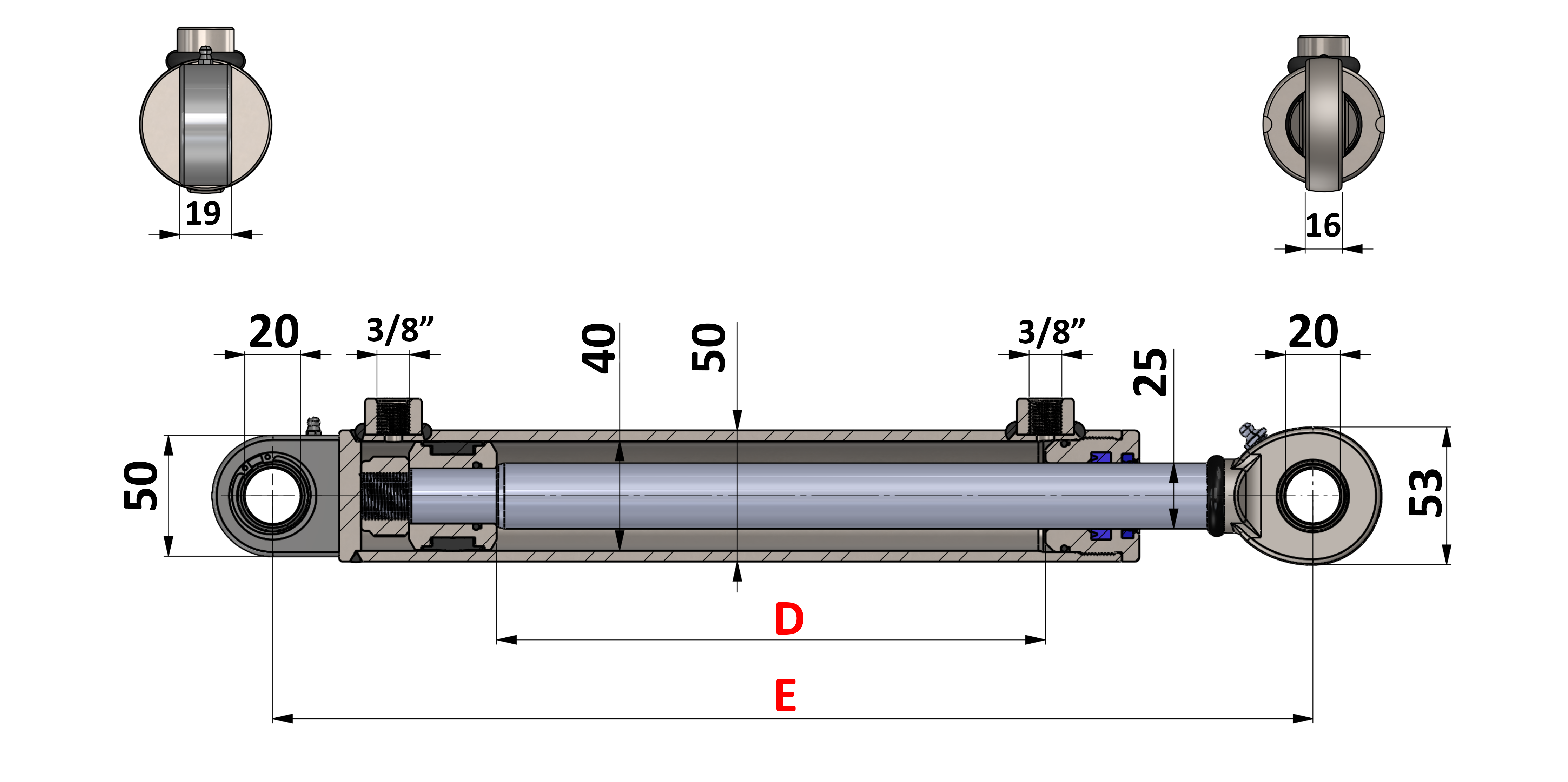HYDRAULIC CYLINDER POINT 40/25-200
DIMENSIONS

| POINT | E | D (stroke) |
| [mm] | ||
| 40/25-100 | 306 | 100 |
| 40/25-150 | 356 | 150 |
| 40/25-200 | 406 | 200 |
| 40/25-250 | 456 | 250 |
| 40/25-300 | 506 | 300 |
| 40/25-350 | 556 | 350 |
| 40/25-400 | 606 | 400 |
| 40/25-450 | 656 | 450 |
| 40/25-500 | 706 | 500 |
| 40/25-550 | 756 | 550 |
| 40/25-600 | 806 | 600 |
| 40/25-700 | 906 | 700 |
| 40/25-800 | 1006 | 800 |
| 40/25-900 | 1106 | 900 |
| 40/25-1000 | 1206 | 1000 |
HYDRAULIC CYLINDERS
A hydraulic cylinder converts hydraulic energy into linear force and consequently movement. They operate based on Pascal's law principle and utilize the force created by the pressure of a closed fluid - oil. When hydraulic fluid is pumped to one side of the cylinder, it pushes the piston, creating linear movement in the desired direction.
A typical double-acting hydraulic cylinder ('differential cylinder') has two ports (for hydraulic hoses), allowing linear movement in both directions.
 |  |
Due to the different surface area ratios of the pressed oil on one or the other side of the cylinder, the cylinder also has different power when extending or contracting. Consequently, due to the different oil volumes on one or the other side of the cylinder, the speed of the cylinder (piston) is also different (faster or slower). When 'extending' the cylinder, the oil acts on the entire surface of the piston, which is why the cylinder performs greater force and moves slower in this case, whereas during 'contracting', where the surface is smaller by the diameter of the piston rod, the cylinder overcomes less force, allowing it to move faster.
Applications of hydraulic cylinders:
Hydraulic cylinders are useful wherever there is a need for greater power. In agriculture, hydraulic cylinders are used for tractors (lifting arms of three-point linkages, top links, hydraulic steering, loaders, FRONT HYDRAULICS, etc.), combines, loaders, etc. They are equally widely used on various tractor attachments, such as spider, loader, tipper trailer, log splitter, flap on slurry tanks, harrows, movement of tillers and mulchers, silage grabbers, turning plows for soil, snow plows, forestry winches, etc.
Hydraulic cylinders are also very commonly used in forestry, machinery construction, construction, shipbuilding, energy, food industry, automotive industry.

We know several types of hydraulic cylinders (different mountings):
Hydraulic cylinders are available in various dimensions and with diverse mountings to meet different needs.
 | Hydraulic cylinders 'STANDARD' |  |
 | Hydraulic cylinders 'HOLE' |  |
 | Hydraulic cylinders 'POINT' |  |
 | Hydraulic cylinders 'FORK' |  |
 | Hydraulic cylinders 'FLANGE' |  |


















